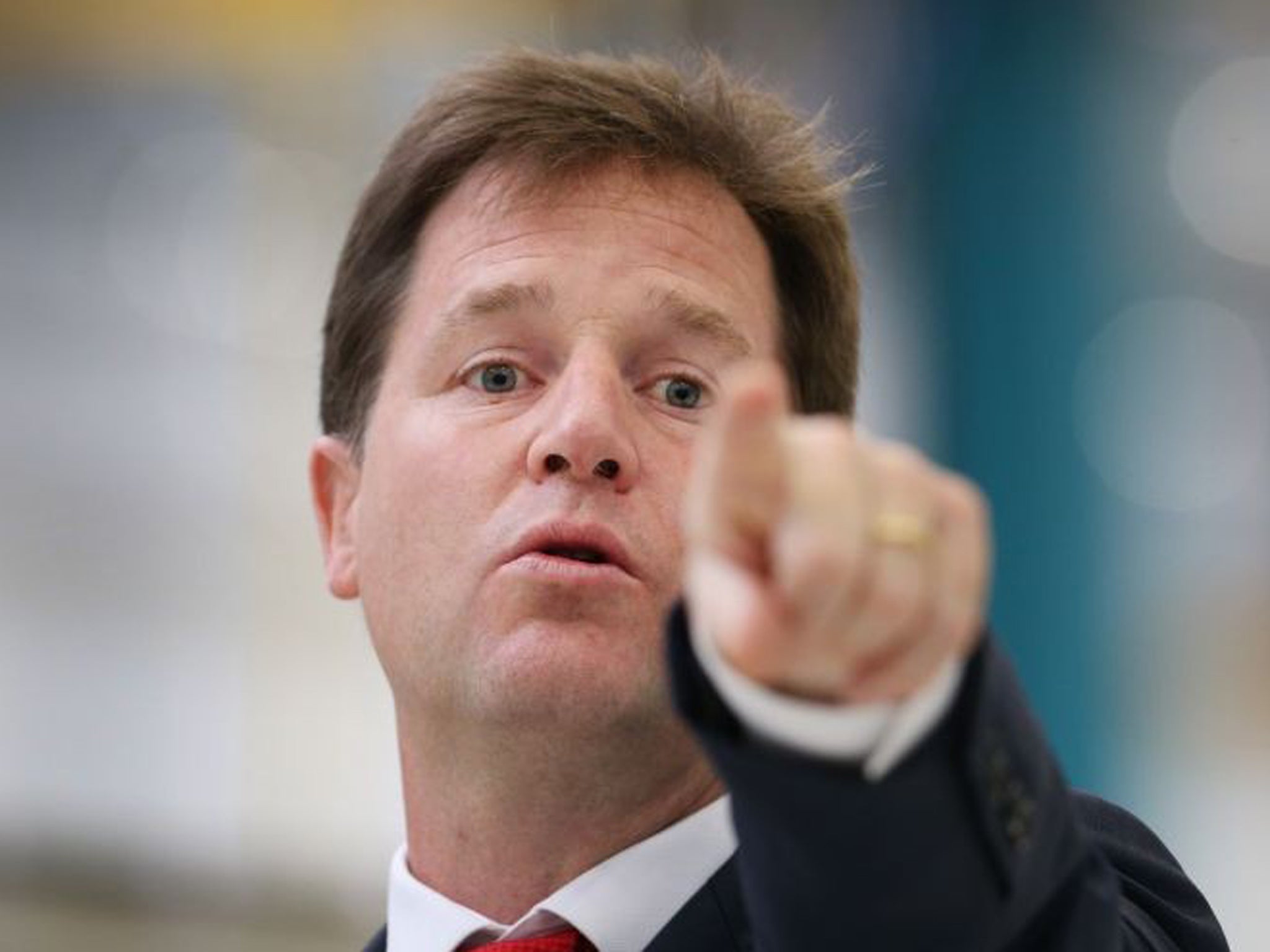It's time for the Lib Dems to defend higher education as they once promised they would

On Monday morning, Nick Clegg promised that the government would not raise tuition fees to £16,000 – in response to Oxford boss Professor Andrew Hamilton’s claim that he’d like to be able to charge his students up to that much.
Clegg went on; "Whether you agree or disagree with the policy, whether you think it’s right or wrong, the really important thing to remember, and it’s been forgotten in the anger and all the rest of it, is if you're an eligible student, you don't have to pay anything up front at all and you don't pay back if you can't.”
These remarks will ring alarm bells for anyone passionate about education, and ensuring access to it is free and fair. Promises made by the Liberal Democrats (including Nick) in the run up to the 2010 election to “vote against any increase in fees”, were soon forgotten as Nick and 26 other Lib Dems voted in the same year to legislate for a rise in fees to their current rate of £9,000. It should be no great surprise then that this guarantee does little to reassure the student population.
This news comes at a time when the sale of student debt is at the front of many debt-ridden students’ and unemployed graduates’ minds, privatisation is sweeping across the higher education sector, and the cost of living is higher than ever for students. Today, the maximum tuition fee is £9,000 per annum, with the largest student grant only just over £3,000. How exactly this can be considered “right or wrong” is a mystery to me, and figures reflect this. In 2011, 20 per cent of pupils on free school meals went on to higher education, whilst 86 per cent of students from private schools made the transition. Something is wrong.
There needs to be a serious rethink of the way in which students and universities are viewed, both by the government and by those managing them. To claim that the past rise in fees, and any future ones, will not have an adverse effect on the most vulnerable and poor in society is preposterous. Nationally, young people from the most disadvantaged areas are three times less likely to enter higher education than those from the most advantaged. For Prof Hamilton to even propose fees of £16,000 suggests a total disregard for ensuring fair access to the country’s best academic institutions. Is it surprising that Oxford in 2012 offered only 57.5 per cent of its places to state school applicants, whilst over 90 per cent of children attend state schools?
It is time that the Lib Dems, and the Labour party (ideally the Tories as well), accept the fact that access to higher education is being adversely affected, regardless of their rhetoric. It may be reassuring to hear Clegg witter on about second chances, but the betrayal felt by students, young people, academics and beyond in 2010 rings loudly in our ears. Only this week, the UCU, alongside other higher education workers, have agreed to strike action. Students do not stand alone in wanting to withhold market forces and increase fair access in our universities.
Rather than conversing about how much we should be increasing fees, it is imperative we reexamine the notion of tuition fees as the status quo. One only needs to look up across the border into Scotland to see how free education can still be provided. The distractions that we face each time fee rises occur detract from the need to fight for free education to be restored in the UK.
Today, groups of students are planning direct action targeting the Liberal Democrats, and is this any surprise? The coalition partners have lied once, and lied again, and promises made by Nick Clegg can do nothing to shake off the stench of treachery. In 2010, students took to the street to fight fees increasing. Should the government, either in this term or next, attempt to do so again, I have no doubt that students past and present will do all they can, showing their “anger and all the rest of it” to ensure it won't happen.
Subscribe to Independent Premium to bookmark this article
Want to bookmark your favourite articles and stories to read or reference later? Start your Independent Premium subscription today.

Join our commenting forum
Join thought-provoking conversations, follow other Independent readers and see their replies